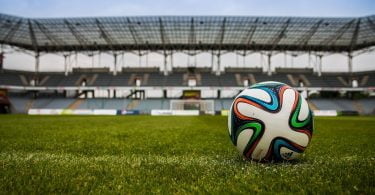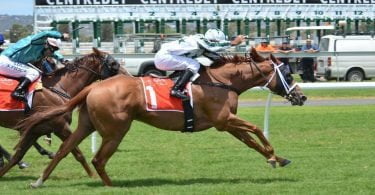Before the Olympics began, British long-distance runner Mo Farah went on record to confirm that despite being of Islamic faith he would observe Ramadan after London 2012 had finished.
Before the Olympics began, British long-distance runner Mo Farah went on record to confirm that despite being of Islamic faith he would observe Ramadan after London 2012 had finished. You would be forgiven for assuming that non-participation in one of the five pillars of Islam is a sin. Yet the Qur’an is remarkably flexible text.
In chapter 2, the Qur’an reads, “And whosoever of you is present, let him fast the month, and whosoever of you is sick or on a journey, a number of other days.”
The second aspect of this passage serves as the rationale for Mo and indeed many other Islamic athletes to postpone their fasting in an attempt to maximise their performances at the Olympic Games. Some Olympic federations simply issued a blanket ruling allowing athletes to observe Ramadan at a later date, such as Egypt. This demonstrates the importance of a successful Olympic campaign (possibly over upholding religion?) and how it can change how a nation is perceived by others.
Many athletes did fast for the duration of Ramadan, which causes physiological stress, interrupts training and preparation and may even disturb athletes of differing faith who are sharing accommodation
Intermittent Fasting
During Ramadan adult Muslims are prohibited from consuming food and water between dawn and sunset. This means that on the day of the opening ceremony, fasting Muslims went without food or drink for 15 hours and 37 minutes. This makes it difficult for the body to maintain blood sugar levels and amino acid concentrations (required for growth and repair of muscle tissue) throughout the day.
Rather than having the typical three or more meals per day plus energy drinks and supplements these athletes have to consume all the necessary carbohydrate, protein, fat and water required for their chosen discipline at night when ideally they should be sleeping.
This can cause sleepiness, fatigue and when exercising an increase in their rate of perceived exertion (RPE). In essence they could feel that they are working harder to achieve the same outcome. This may lead to a depressed mood state and trouble motivating oneself whilst attempting to get into the ‘zone’.
Not eating for such an extended period of time exhausts the body’s muscle and liver glycogen, the body’s primary store of carbohydrate – needed for short, intense bursts of exercise. For athletes that may have to compete in a number of heats, semi-finals and even finals on the same day, this may severely inhibit their later performances, reducing the likelihood of winning a medal.
The lack of available glycogen induces an increase in fat metabolism, designed to substitute the energy deficit. The trouble is the very top athletes have incredibly low body fat percentages ranging from 6-13% and 14-20% in elite male and females compared to 13-17% and 20-25% in healthy, non-athletic populations of males and females respectively. Subsequently their body has to find energy from alternate sources.
Protein Breakdown
Unfortunately the only other available source of energy at this point is protein, and if energy derived from this process (gluconeogenesis) is sustained it can lead to a progressive loss of muscle and blood-based proteins. Generally speaking, elite athletes experience a negligible fall in body mass, often attributed to dehydration and not through a loss of muscle tissue as they often increase their protein ingestion.
The anti-oxidant effects of haptoglobin and antitrypsin may also contribute to the apparent stability of body mass. If the body is forced to breakdown protein it will attempt to preserve the most vital constituents of cells. Haemoglobin, the red pigment in red blood cells, binds readily to haptoglobin so it can be recycled in the spleen. Similarly antitrypsin does exactly as its name suggests – it prevents trypsin (a protease enzyme) amongst others destroying muscle tissue and other key proteins, contributing to maintenance of lean body mass.
Many of these athletes seek to lessen their work load, reducing the duration, intensity and volume of their training. Fortunately these tactics fall nicely into a planned tapering regimen designed to allow the body to recover from strenuous training and ‘peak’ for their events.
Research suggests that reducing the training volume whilst fasting from ~6.5 hours to ~4.5 hours per week has a marked effect on performance. Athletes were noted as having an associated increase in completion time of a 3000m run, greater fatigue over a series of sprints and a decrease in vertical jump height.
Another tactic employed is daytime napping which whilst helping to conserve energy, agitates already disrupted circadian rhythms. Some athletes then switch to night-time training but for team-based sports where some athletes are observing Ramadan and some are not this is far from ideal.
Training Regimen
The Moroccan men’s football team for instance featured 21 players all of which were Muslim; however 13 of these players chose to postpone their fast and 9 observed Ramadan, effectively splitting the team in two. The players ate and trained separately for the entire games, which undoubtedly played some part in Morocco failing to progress beyond the group stages as there was an obvious lack of fluidity to their play.
It is advised that athletes observing Ramadan should train in the very early hours and late in the evening, allowing them to eat no longer than 1 hour after training is completed whilst the sun is still down. Reports suggest ~0.9g of protein per 1kg of body mass post-exercise is essential to maintaining muscular function. Empirical evidence suggests that during Ramadan there is often an increase in protein ingestion; however athletes from third-world countries that are considered to have a poor diet are most at risk.
Even during play there were issues with rehydrating players as some were allowed fluids and some were not. Those observing Ramadan found it incredibly difficult to provide a urine sample for drug testing often lingering for many hours after the football match had concluded so what little excess water they had could be expelled for testing.
Thirsty Work
Cumulative dehydration is arguably the biggest challenge facing all observing Muslims. For athletes it is most concerning at the start of Ramadan as toward the end of the fasting period the human body finds ways of the sustaining resting fluid balance.
Dehydration causes a drop in the volume of blood circulating around the body, increasing the training load put upon an athlete. Effectively, in order for the muscles to receive the same amount of oxygen and nutrients, the heart has to beat more often to maintain blood pressure and deliver these substances.
For athletes involved in endurance events this is of particular concern. The men’s marathon was held on August 12th at 11.00am which averaged 23.5°C across the duration of the competitive race. At this temperature sweat loss can be as much as 3 litres during a race. Those observing Ramadan would be unable to replace the fluid lost after the conclusion of the race. Only in the case of hyperthermic heat collapse would they be considered eligible for intravenous fluids.
The average person stores approximately 1.5 litres of water in association with glycogen. As glycogen is used up water is released into the body to allow heat to escape through the process of sweating, so here there is an obvious water deficit.
While ingesting water is prohibited to observing athletes, there is no restriction on pouring water on oneself in attempt to mimic the effects of sweating although little research exists to substantiate how effective this technique may be to fasting athletes.
Manipulating Metabolism
It has been suggested that in order to circumnavigate the negative effects of fasting on athletic performance the athlete in question should switch to a high-fat diet prior to competition to encourage the body’s ability to derive energy from fat stores (adipose tissue) to discourage protein-derived energy metabolism. Once competition has started these athletes should then switch to a high carbohydrate diet to maximise their glycogen stores.
All training is best undertaken around the time of their morning or evening meal with an eating window of 1 hour before or a maximum of 3 hours following training.
Whilst sufficient evidence exists that suggests that Ramadan can be observed whilst competing in sport much of this research has not been based on athletes competing in the top tiers of their respective disciplines. It is therefore difficult to generalise this information to these unique populations.
Islamic Progression
The standout Islamic nation at the Olympics games was Iran collecting 12 medals, 4 of them gold. Their obvious progress is good for the emergence of sport in Islamic nations and similar to the prejudices faced by athletes of African descent in games gone by they will seek to overcome stereotypes and continue to improve their respective nation’s medal tallies at future Olympics.
Unfortunately no data currently exists on the total number of Muslim-medallists at the London Olympics and subsequently it is impossible to determine the proportion of these medal winners who observed Ramadan. Statistics will no doubt have been gathered during the games to establish just how much of an effect fasting has had on these athletes to help develop future training regimens designed to optimise performance for these athletes.








